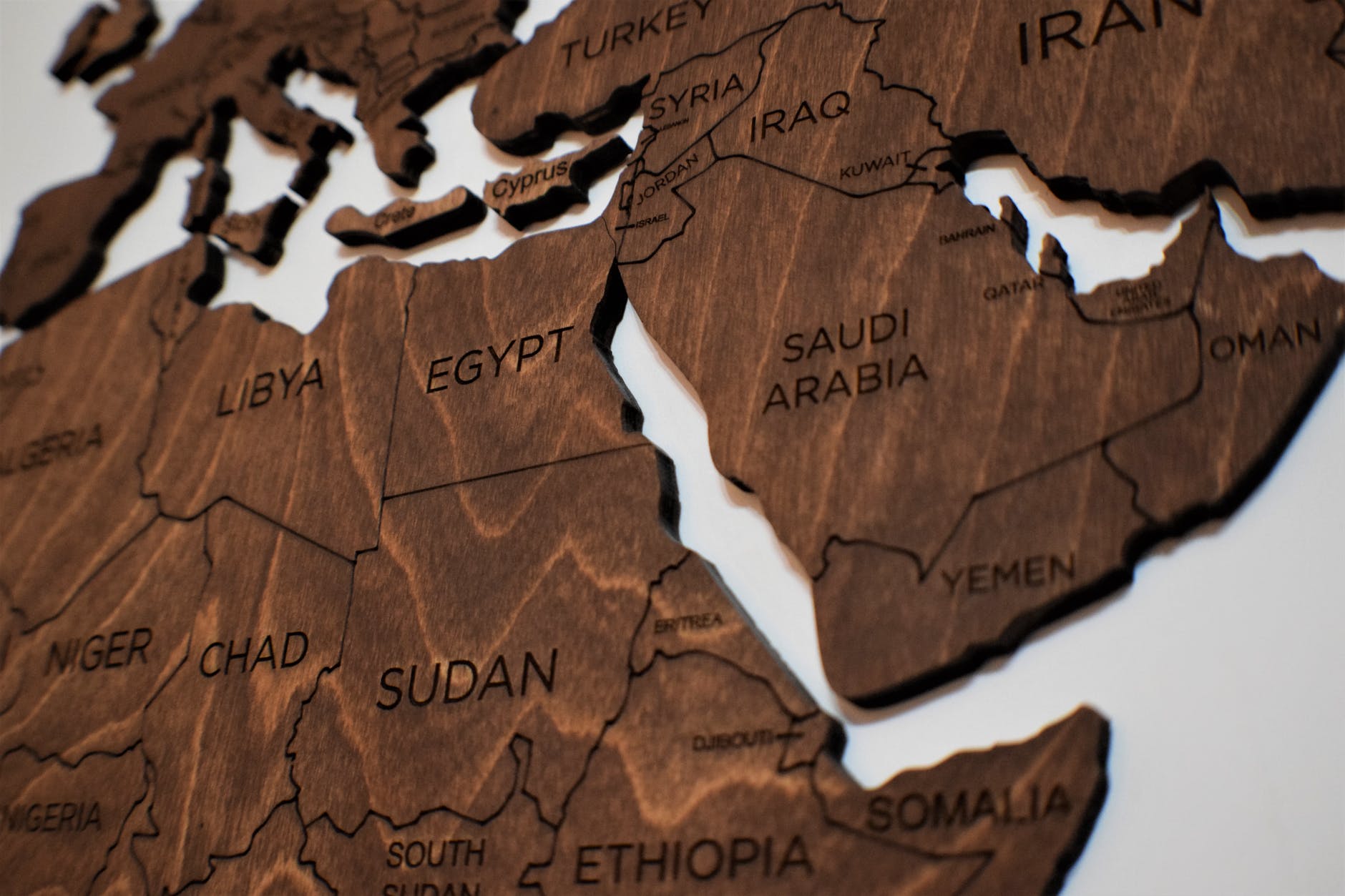(Want to get this briefing by email? Here’s the sign-up.)
Good morning.
We’re covering the takeaways from more than two decades of President Trump’s tax returns, the global death toll from the coronavirus and the death of a man who ate one to two large bags of black licorice a day for three weeks.

Trump’s tax returns show years of tax avoidance
In 2016, the year Donald Trump won the presidency, he paid $750 in federal income taxes. The following year, he paid another $750. And in 10 of the previous 15 years, he paid no income taxes at all — largely because he reported losing much more money than he made.
The Times has obtained more than two decades of President Trump’s tax returns. The documents paint a picture of a man who takes in hundreds of millions of dollars in some years yet racks up chronic losses.
Response: Mr. Trump denied wrongdoing and attacked the I.R.S. in response to questions about the investigation, which he dismissed as “fake news.”
Timeline: Our interactive timeline charts the ebbs and flows of Mr. Trump’s finances, including huge losses, looming financial threats and a large, contested refund from the I.R.S. that could cost him more than $100 million.
In brief: Key findings from the investigation include the $70,000 spent on hairstyling, the 20 percent of income set aside across nearly all his projects for unexplained “consulting fees” and how his unprofitable companies help reduce his tax bill.
Editor’s note: “We are publishing this report because we believe citizens should understand as much as possible about their leaders and representatives,” writes Dean Baquet, the executive editor of The Times. “Every president since the mid-1970s has made his tax information public.”
One million people have died from the coronavirus
The world is likely to pass a painful milestone in the coming 24 hours: more than one million deaths from Covid-19. India, the world’s second-most populous nation, leads in daily virus-related deaths. The U.S. is second, with Brazil and Mexico third and fourth. These four countries account for more than half the world’s total deaths from the virus.
As of this writing, at least 994,457 people have died, nearly 32 million people have been sickened, and the virus has been detected in nearly every country, according to a Times database. The World Health Organization said on Friday that the death toll could double if countries did not uniformly work to suppress the virus’s spread.
With seasons changing, some countries that were hit hard by the virus in the spring and summer are beginning to shed lockdown policies, raising fears of future surges. In Europe, second waves of infections have already hit Britain, Spain and France.
Here are the latest updates and maps of the pandemic.
In other developments:
-
With positive virus tests reaching new highs, Israeli officials pleaded with the public to heed lockdown measures heading into Yom Kippur.
-
For those facing daunting seasonal cold, The Times gathered some advice from experts on keeping the virus at bay indoors.
-
The French Open tennis tournament began in Paris despite a recent spike in coronavirus cases that restricted spectators on the grounds to 1,000 per day.
-
In Madrid, about 1,000 protesters took to the streets on Sunday to demand an end to a partial lockdown imposed by the regional government.
-
Without further restrictions, Britain could end up “caught in a cycle of epidemic waves,” a member of the government’s scientific advisory board warned.
Heart-wrenching testimony from survivors in Paris
In a Paris courthouse last week, survivors and families of the four victims of an attack on a kosher supermarket in January 2015 relayed their memories of the terrifying assault and how it left their personal lives in tatters. More than a dozen people are on trial, many facing charges of aiding the assailant, the Islamic extremist Amedy Coulibaly, who was killed after security forces stormed the grocery.
Because of the attacks, “no Jew in France can go to the synagogue or drop off their children at school without thinking that they are a target,” Francis Kalifat, president of the Representative Council of Jewish Institutions of France, told the court. “This trial must also be the trial of an anti-Semitism that kills.”
Charlie Hebdo: The 2015 attacks came just days after the massacre of cartoonists and journalists at the offices of the satirical weekly newspaper Charlie Hebdo. On Friday, two additional people were stabbed outside the former Paris office of the newspaper. A suspect in the stabbing has confessed, saying that his attack was directed at the publication because it had reprinted cartoons mocking the Prophet Muhammad.
If you have some time, this is worth it
How Amazon won over Italy — finally
Hampered by a lack of widespread broadband, an older population unused to shopping online and poor infrastructure for delivering packages, Amazon had long struggled to make inroads in Italy. But the country’s early, biting lockdown at the start of the pandemic has changed the equation for many Italians — possibly permanently.
The company’s success has, in turn, drawn scrutiny. Unions have criticized Amazon’s labor practices, including staging a multiday strike over virus-related safety policies. Italian regulators are also investigating the company for price gouging during the pandemic.
Here’s what else is happening
Child labor: With schools closed because of the pandemic, children are taking illegal and often dangerous jobs in India and other developing countries, potentially rolling back years of progress in social mobility and public health.
Nagorno-Karabakh: Fighting broke out on Sunday on the long-disputed border of the breakaway province between Azerbaijan and Armenia, and quickly escalated to the largest clash since 2016. The neighboring countries described the events as “war.”
Uighurs: Xi Jinping, the Chinese president, described his policies in the autonomous region of Xinjiang as a “totally correct” success and vowed to do more to imprint Chinese national identity “deep in the soul” of Uighurs and other largely Muslim minorities.
Paternity leave: Switzerland is the last country in Western Europe to adopt a law mandating paternity leave, beating back strong conservative opposition to the proposal.
Snapshot: Above at the White House, Judge Amy Coney Barrett, President Trump’s pick to replace the late Justice Ruth Bader Ginsburg on the Supreme Court. If confirmed, the 48-year-old judge’s almost uniformly conservative voting record suggests she would move the court to the right, potentially changing the right to abortion in the U.S.
Lives lived: The game-changing French chef Pierre Troisgros, whose unpretentious approach to seasonal cooking earned him fans, plaudits and Michelin stars, died at 92 on Wednesday at his home in Le Coteau, France.
Licorice: A new scientific journal article explores the death of a 54-year-old man from Massachusetts, who died after eating one to two large bags of black licorice a day for three weeks, eventually resulting in cardiac arrest.
What we’re reading: “In this powerful piece,” Marc Lacey, our National editor writes, “the Los Angeles Times reporter Greg Braxton confronts a former editor about a remark that has bothered him for nearly 30 years.”
Now, a break from the news
Cook: This one-pan orzo with spinach, feta and dill is as appealing as risotto, but without all the stirring.
Read: Daniel Kraus’s “They Threw Us Away” and “Saucy,” by Cynthia Kadohata, are among a new crop of children’s books helping to revive the genre of richly illustrated novels.
Listen: The latest playlist from our pop critics features some sass and swing from Jennifer Lopez and Maluma, and Wizkid, an Afrobeats luminary from Nigeria.
It’s the start of a new week. Take some time to explore new ideas from our At Home collection on what to read, cook, watch and do while staying safe at home.
And now for the Back Story on …
Frame by frame: Inside our video investigations
Since the killing of George Floyd in May, The Times’s visual investigations unit has examined several cases involving police violence or scenes of protest in the U.S. The team of reporters, editors and producers tries to provide a more complete picture of an event. Our Times Insider series took a look at how they do it.
“Often there’s one video from these incidents that goes extremely viral for a variety of reasons: It’s intense, it’s graphic, it’s emotional for a lot of people. But very often, those single videos that go viral don’t tell the whole story of what happened,” said Haley Willis, a video producer on the team who worked on the report detailing the police shooting of Jacob Blake in Kenosha, Wis.
The visual investigations team uses original recordings, explores open sources like social media, analyzes and authenticates audio components of a recording, reviews incident reports and applies traditional methods of tracking down sources and mapping out timelines.
For the team, achieving accuracy is always a must. But at a time when these viral events can quickly become politicized, another priority is presenting the information in a way that’s tonally sensitive and responsible.
“We never want to just show something graphic just to show it,” said Whitney Hurst, a senior producer. “We always want to be able to bring the analysis to the table that can really push the story forward.”
The utmost responsibility of each investigation, Ms. Hurst said, is to uncover and convey the facts — whether that takes a few hours, a few days or even a few months — and to present the findings in a visual way that offers insight into that news.
More often than not, Ms. Willis said, the responses to their work have a common thread: “I thought I knew what happened. But I didn’t.”
Here’s the team’s video investigation of the killing of Mr. Floyd.
That’s it for this morning’s briefing. See you tomorrow.
— Natasha
Thank you
To Melissa Clark for the recipe, and to Theodore Kim and Jahaan Singh for the rest of the break from the news. You can reach the team at [email protected].
P.S.
• We’re listening to “The Daily.” Our latest episode is on the push to reform policing in Minneapolis, where George Floyd was killed.
• Here’s our Mini Crossword, and a clue: “Piece of soap” (three letters). You can find all our puzzles here.
• The word “pornomime” — a neologism meaning a mime that acts out sexual scenarios — first appeared in The Times on Sunday, according to the Twitter bot @NYT_first_said.
• The Times put together useful information for Americans voting from abroad in the Nov. 3 election.














